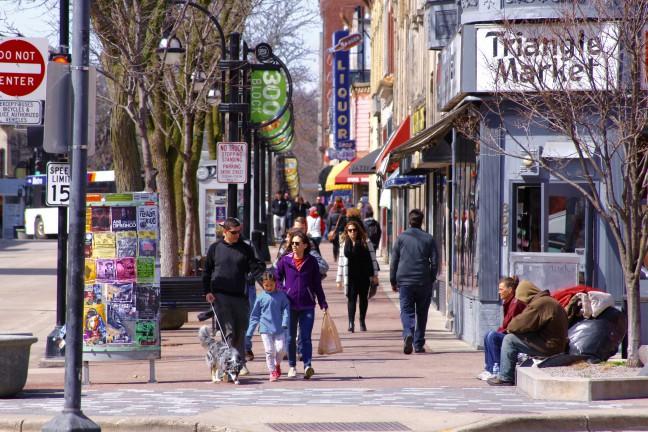In America, every day is election day.
At every store on State Street, every food cart on Library Mall and on an untold number of computers in lecture halls across campus, students’ voices are heard. They’re not deciding who the next president will be, or even filling out ballots. Every day these students, frequently unconsciously, make decisions on the type of society they want to live in. It’s not as dramatic as election night, but where and how we spend our money shapes our world.
Our society is the product of individual choices. We collectively decide what world we want to live in. An infinite amount of options face us every day, from the mundane to the life-altering. Many have no bearing whatsoever on anyone but ourselves. But how we spend our money is important. It’s a profound decision more than worthy of a voting analogy.
The ability to freely buy and sell goods and services is fundamental to our society. We structure our lives around earning money. Although we don’t like to admit it, our material wealth, how we attained it and where it’s located, make up a significant part of our identities.
Shops on State Street perpetuate income disparities, cater to top one percent of students
Some of the most powerful actors in today’s society are large corporations. Like our elected leaders, these institutions occupy their current station because of our individual choices. What’s more, like voters in a presidential election, consumers bear some responsibility for their “votes.”
It’s important to recognize how your actions affect other people in the world.
When a company mistreats its workers or disregards environmental regulations, consumers can’t simply wait for the government to step in. Continued support for sleazy businesses leads to further injustice, and the company’s guilt becomes the consumers’ guilt. While you may not be cheating anybody directly, contributing to a company allows them to continue their practices.
Skip the basics — unique, fashion-forward stores on State Street await
Just as society is the product of choices, our individual lives are as well. The way we choose to interact with one another reflects our character. Good people choose to treat others with respect. It’s a basic principle and something I think students at Madison do pretty well. When someone breaches the norm, the response from the rest of the community is generally swift.
However, we must recognize the fact that monetary transactions affect other people. At the end of the day, you vote with your feet. Decrying a company’s destruction of the environment and expecting the government to do something is not enough. Where you spend your money shapes the world you live in. It’s time for us to treat monetary transactions as interpersonal relations and use our conscience at the register.
Will Maher ([email protected]) is a sophomore majoring in history and international studies.














